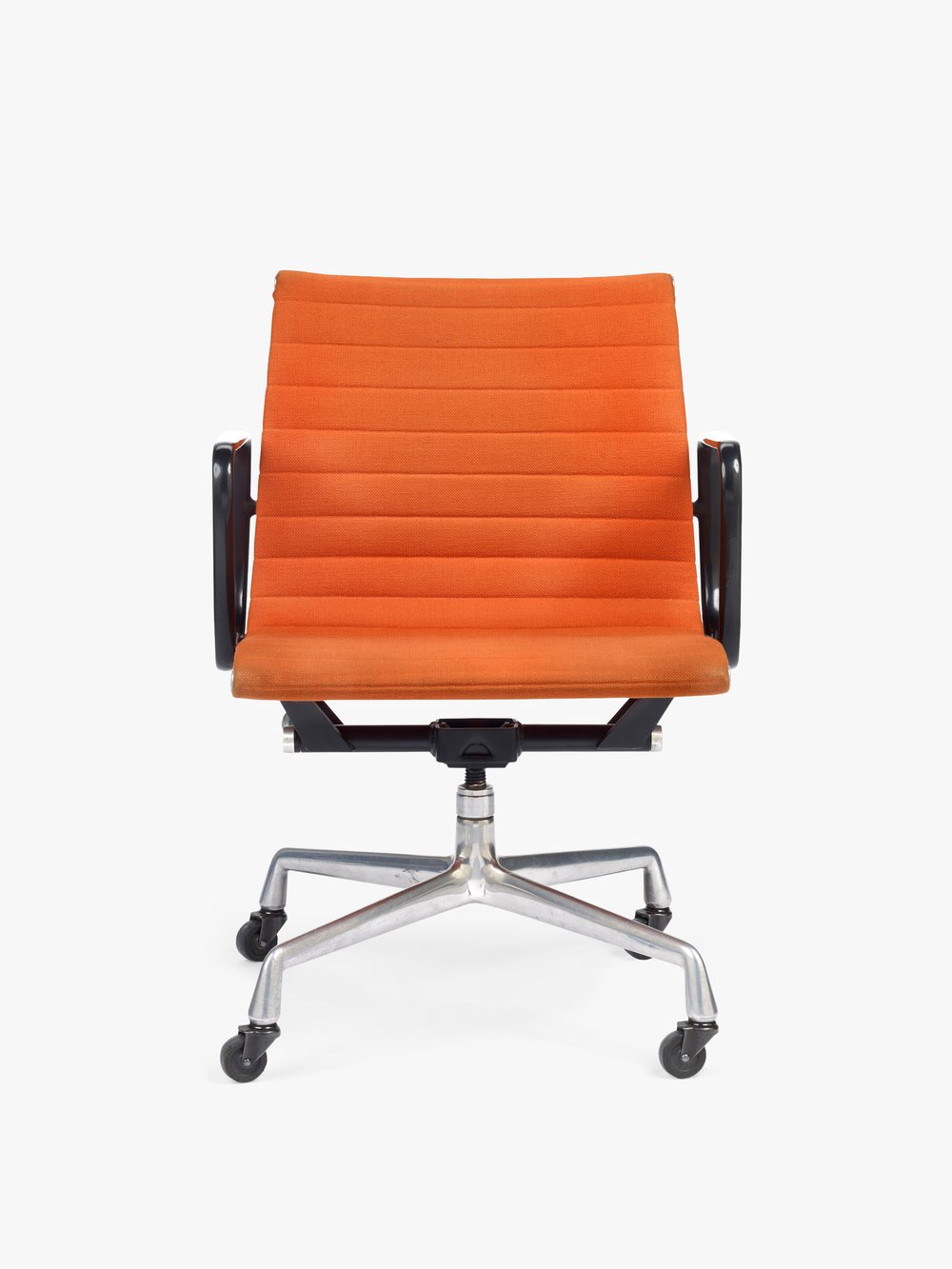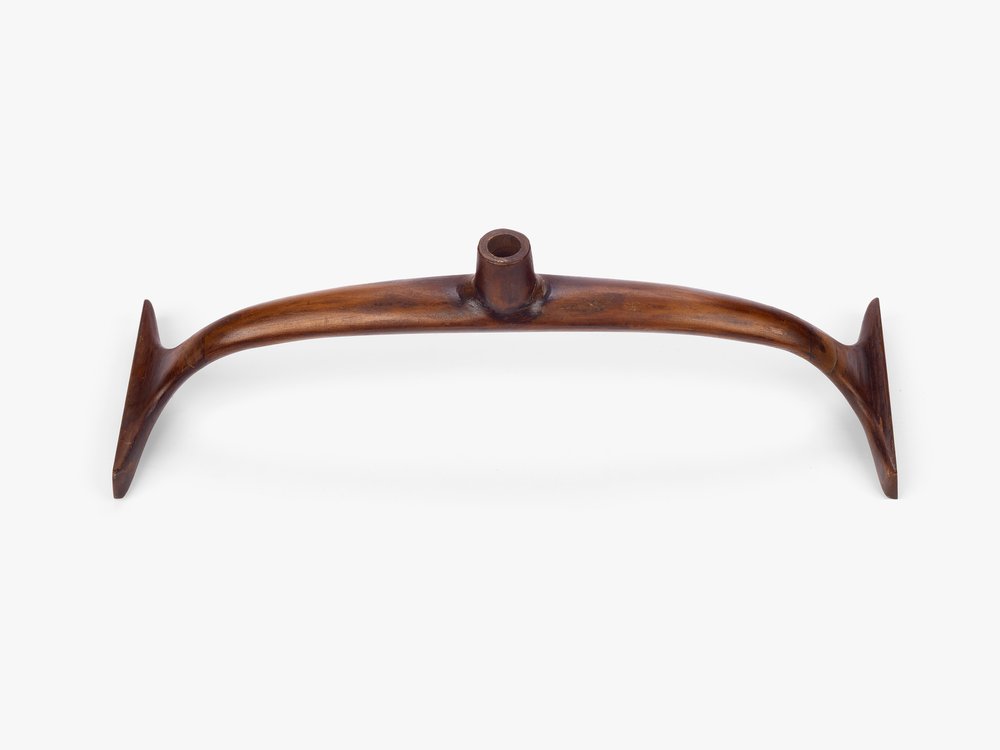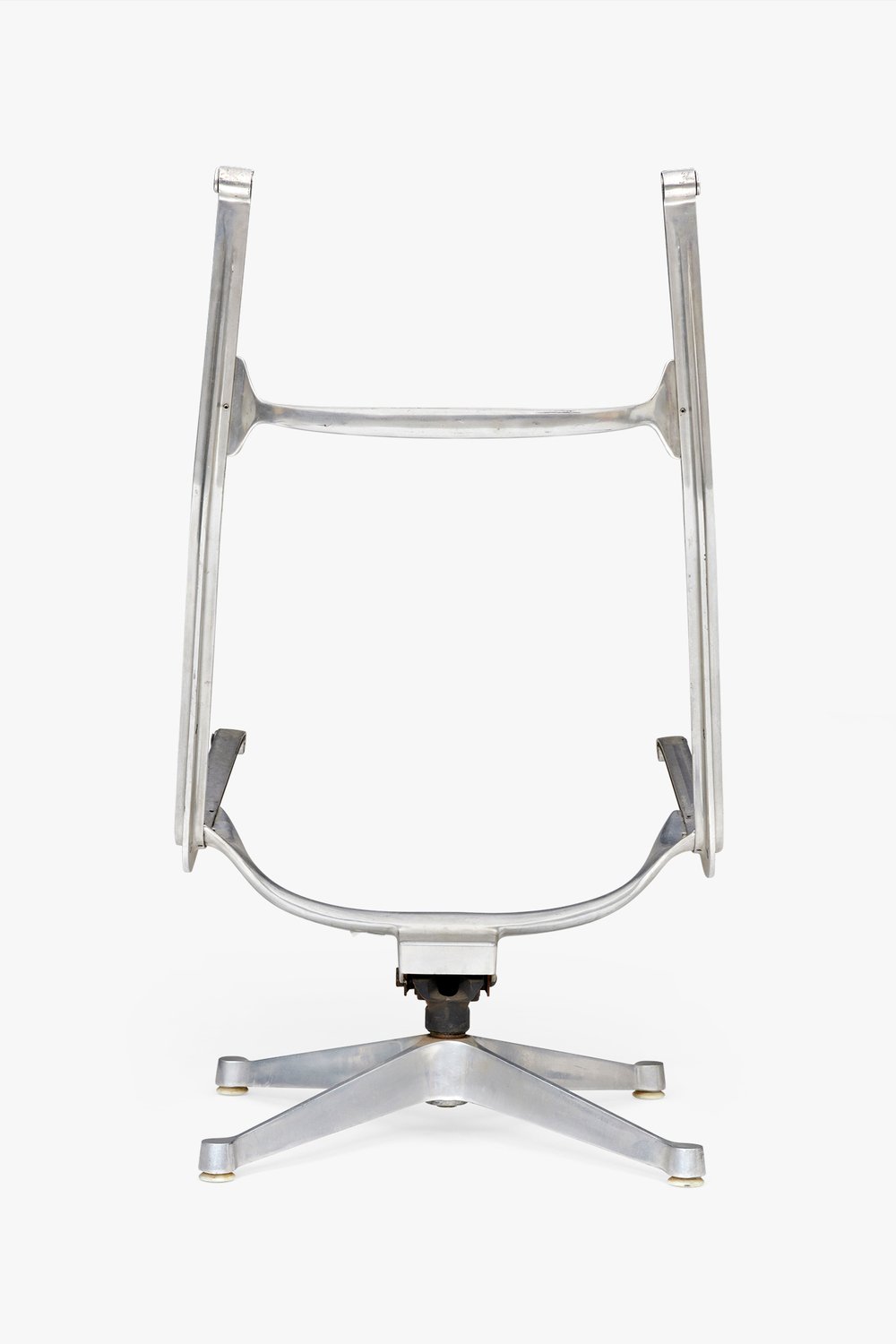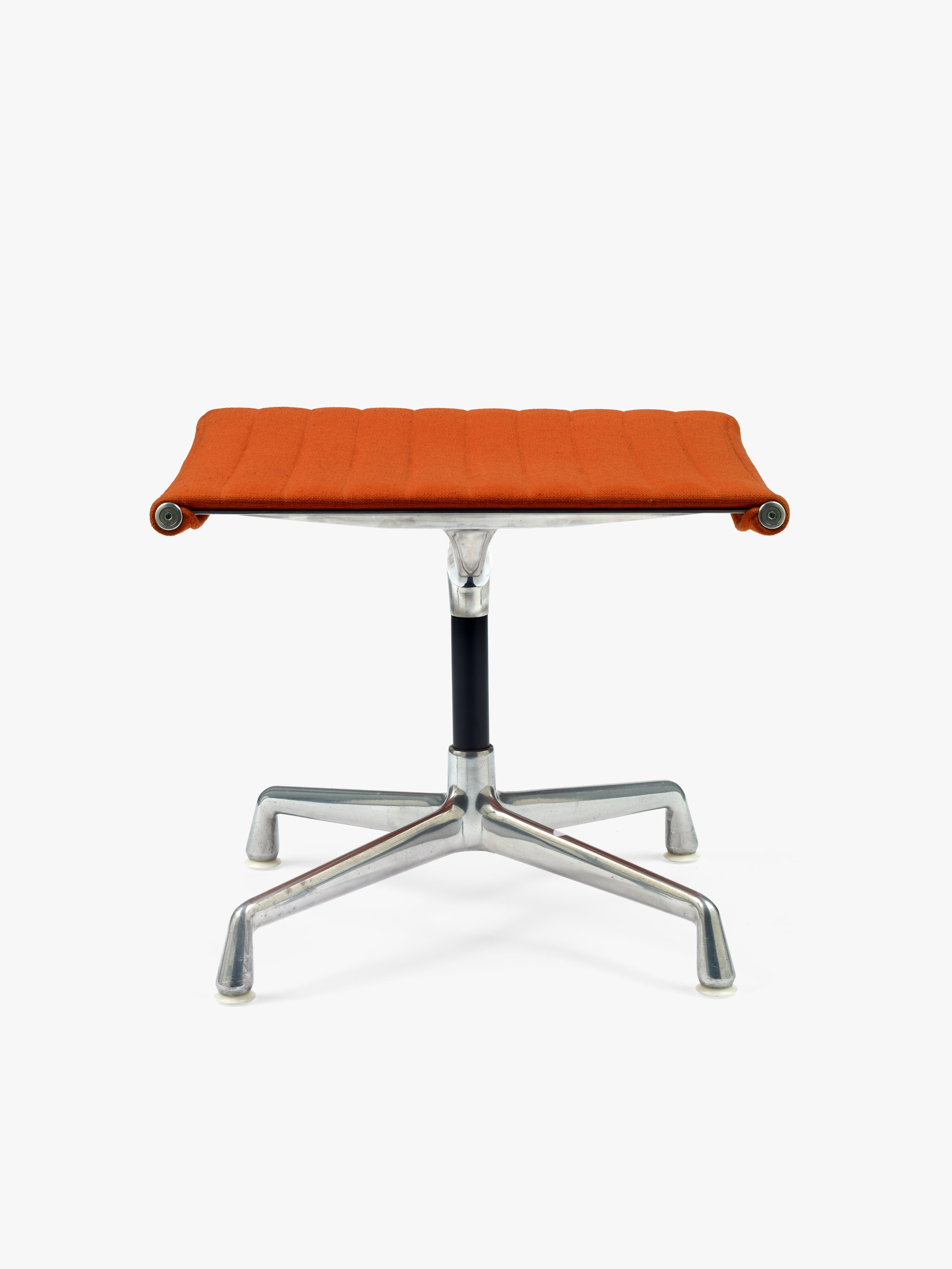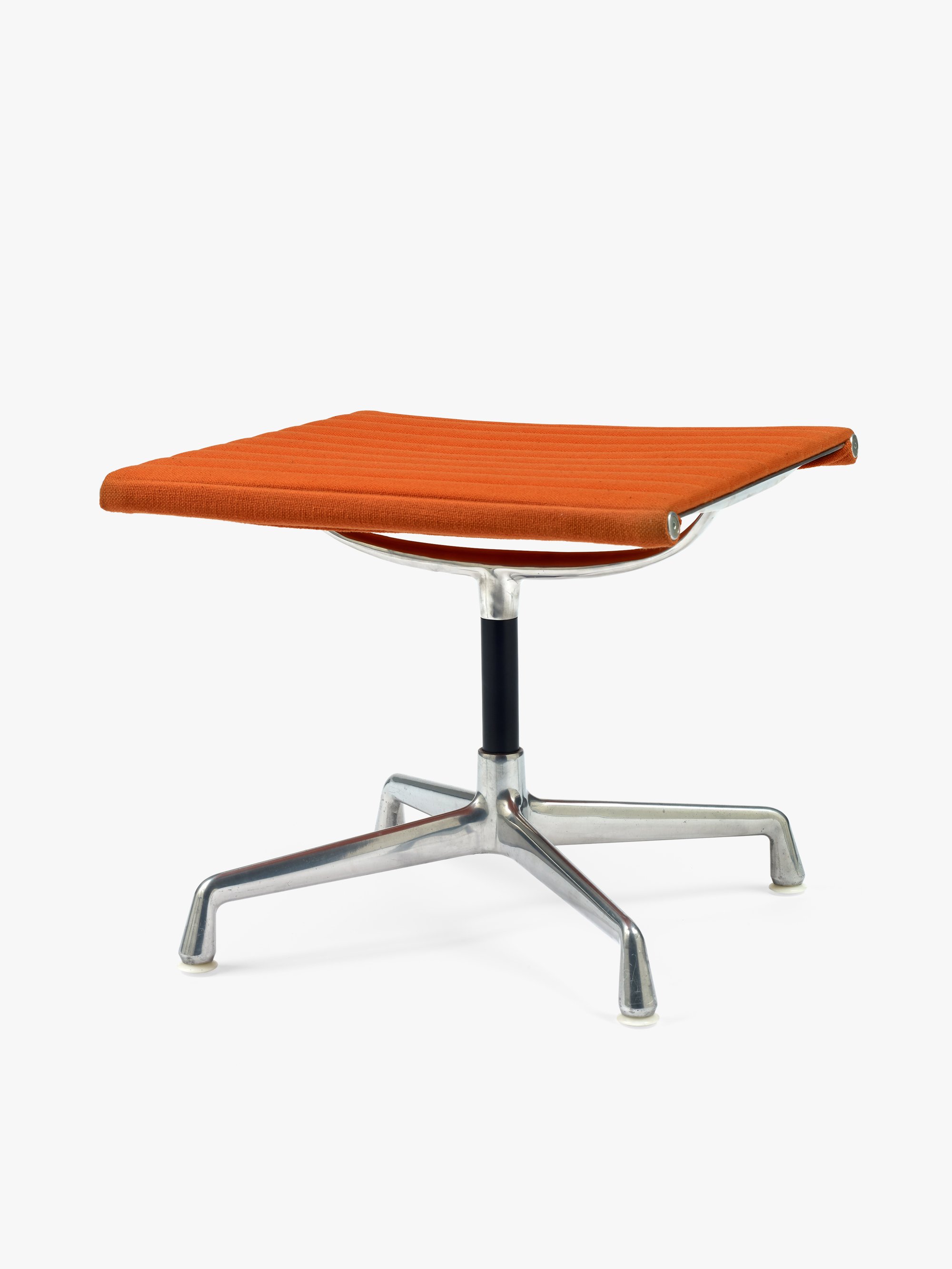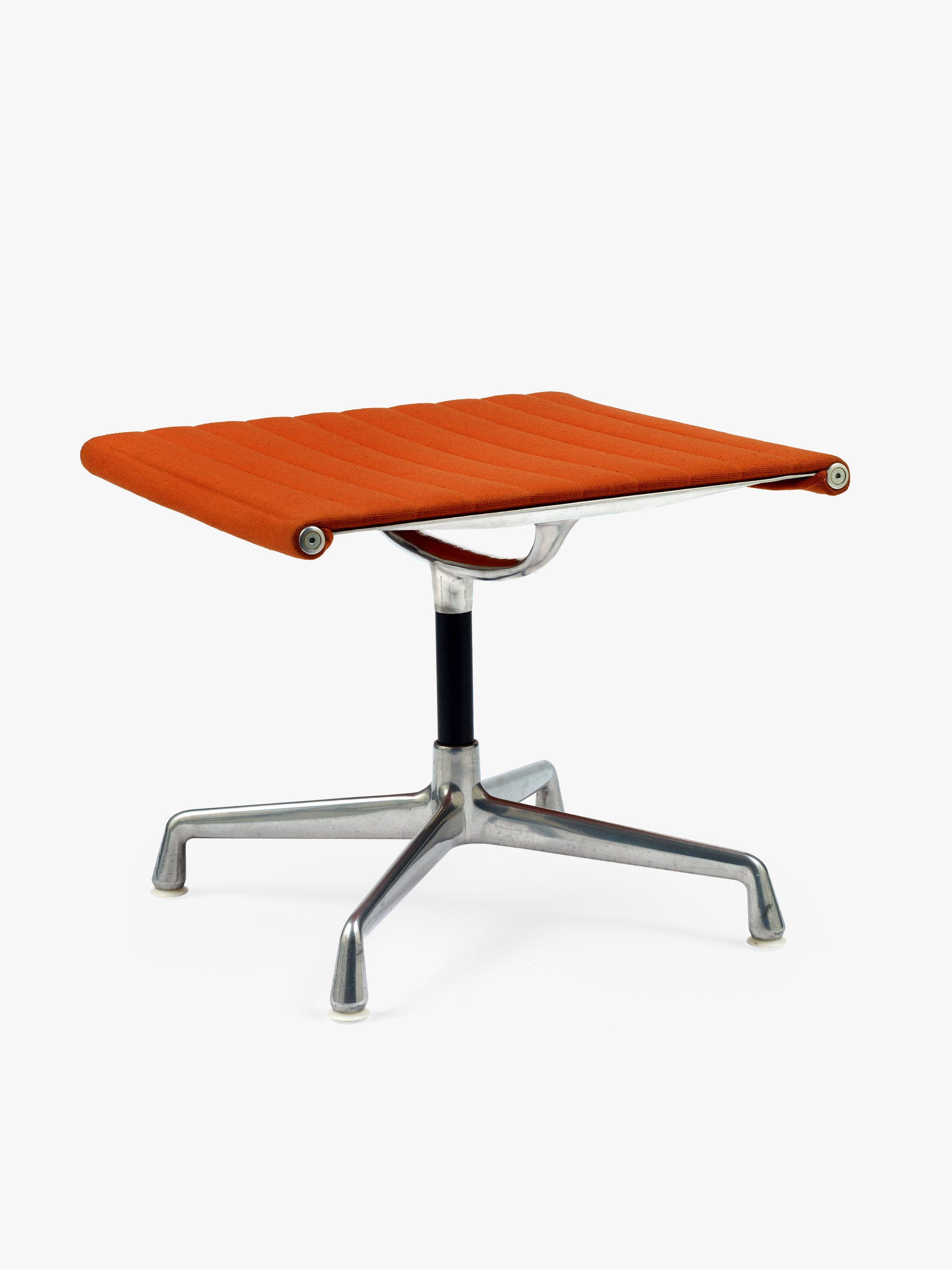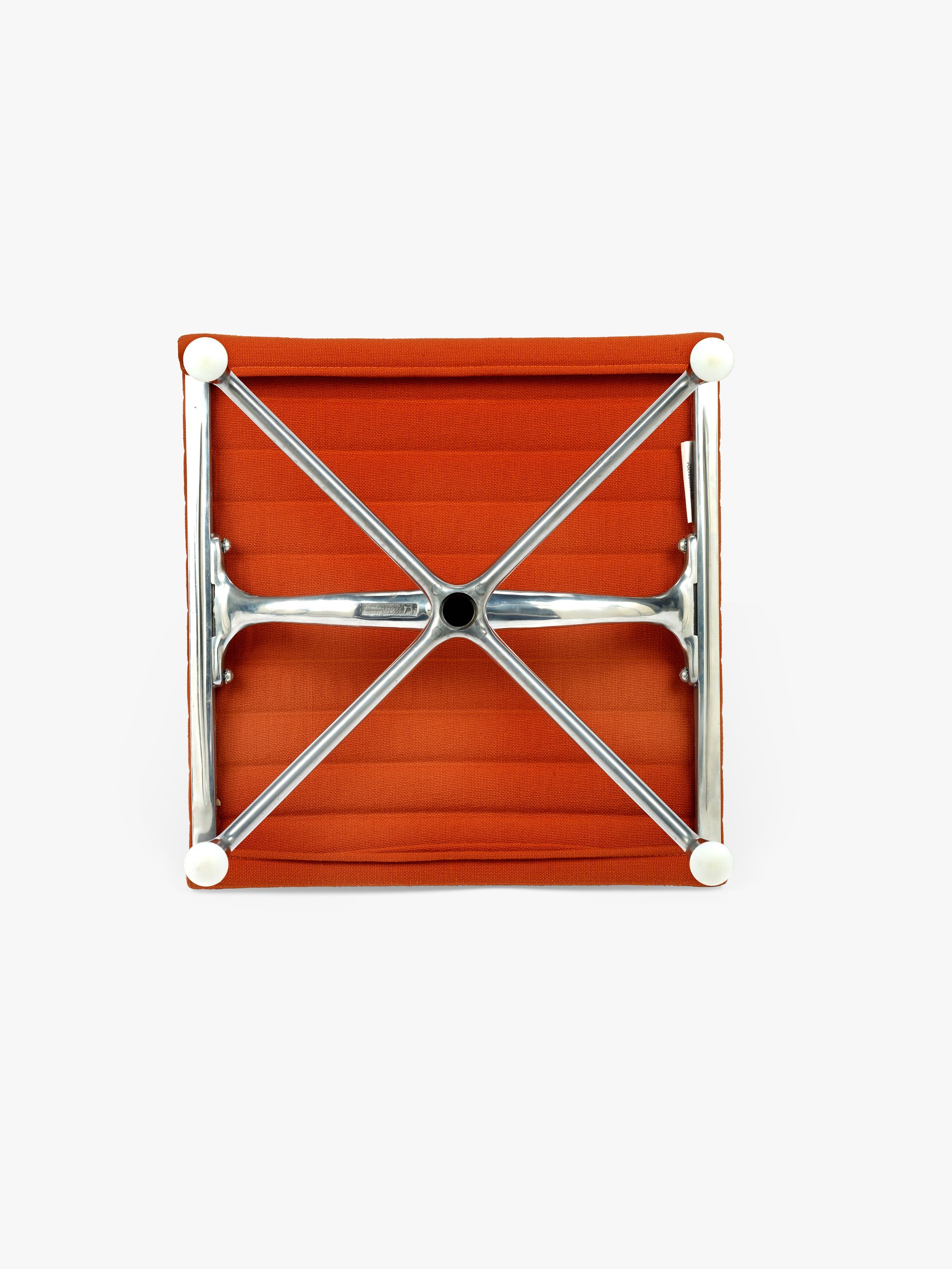EA 323 Ottoman
1974
This ottoman uses the “Eames Universal Base,” which was introduced in 1961 as a base for chairs, tables, and ottomans from various Eames collections. This replaced the “Eames Contract Base” used in earlier models, which had been first designed in the early 1950s and also modified over time. Though both the Contract and Universal bases were made of polished aluminum and included four arms extending from a central column, the newer base swapped the straight, fin-like arms of the Eames Contract Base for a more slender and rounded design. In particular, whereas the Eames Contract Base terminated with cylinders that looked like rather distinct appendages to the legs, the Eames Universal Base featured a more continuous line. Each leg terminated with a seamlessly connected foot that flared slightly at the end (for greater stability). This ottoman is also distinguished by its orange Hopsack textile. Unlike the Eames Aluminum Group’s original synthetic upholstery, Hopsack is made of natural wool fibers and woven in a fairly loose weave that creates a visible, though subtle, grid. The bright orange color is emblematic of the vivid and warm color palette that became popular in U.S. fashion, interior design, and more in the late 1960s and 1970s; a result of multiple overlapping cultural currents, from the hippie counterculture to the influence of British mod.
- Manufacturer: Herman Miller, Inc.
- Medium:Upholstery ('Hopsak' Orange #4411), aluminum, steel, nylon
- Dimensions:17 3/8 x 21 1/8 x 21 in. (44.1 x 53.7 x 53.3 cm)
- Design Date:1969
- Item:2019.1.44.1.2
